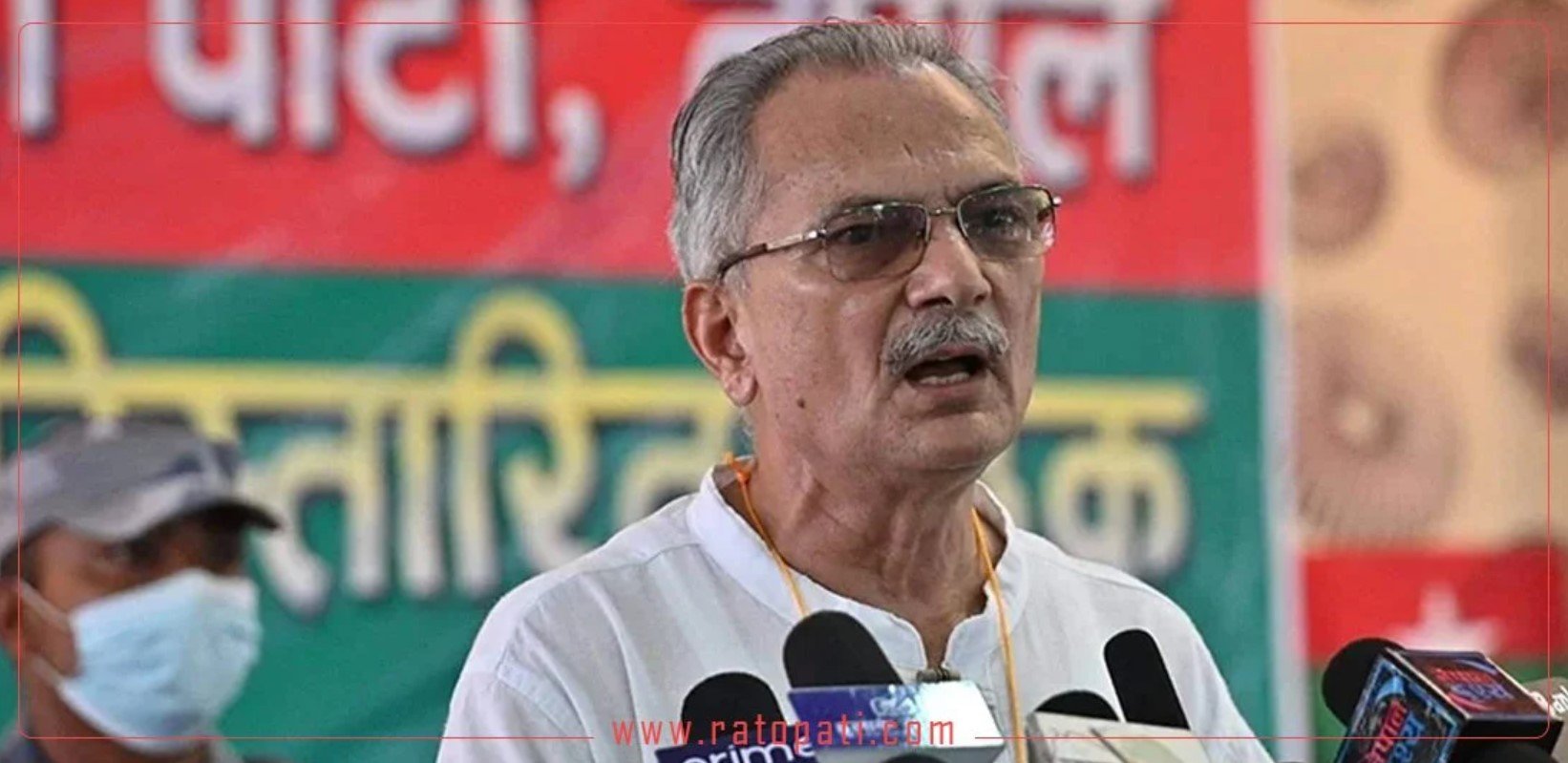Bhattarai challenges former comrade-in-arms Prachanda on Maoist unity

Kathmandu, October 24 — Former Prime Minister and Chairman of the Nepal Samajwadi Party (Naya Shakti), Dr. Baburam Bhattarai, has raised questions regarding the necessity of unity among former Maoists.
Chairman of the Maoist Centre, Pushpakamal Dahal Prachanda, has repeatedly emphasized the need for former Maoists to unite. In response, Bhattarai questions what the ideological and political justification for such unity is.
He asks, “Why should all former Maoists gather in one place? To instigate another people's war? To hold celebrations? Or to elevate Prachanda to parliamentary power once more? What is the ideological and political rationale behind this?”
He continues, noting that some close associates of Prachanda are again insisting on the need for all former Maoists to come together. Recently, Prachanda, having been ousted from power, has been threatening to mobilize a movement around the issue of "good governance."
Since the promulgation of the constitution in 2015 with the federal republic set-up, Bhattarai stated, “We have consistently asserted that the Maoist movement has fulfilled its historical mission, albeit with certain shortcomings.” He added that the world has entered the fourth industrial revolution, while we remain in the phase of the first industrial revolution. “We are caught in the clutches of globalized financial capitalism, bound by unequal and dependent relationships.”
In this context, he argues, “We cannot rely on outdated Maoist ideology or a Stalinist framework to address the tasks of a new era.” He emphasizes the need to resolve the principal contradictions between the evolved political infrastructure and the lagging economic, social, and cultural foundations to align with global advancements. This necessitates “the development of new ideas, political strategies, organization, and leadership.”
Thus, he identifies the need to develop a model of new socialism based on inclusive and participatory democracy, which he refers to as “enhanced socialism.”
During the period of the people's war, Bhattarai asserted, “The correctness of the ideological-political direction was crucial for the success of the revolution.” However, he questions the meaning of calling for all former Maoists to unite emotionally without discussing necessary developments in direction, organization, and leadership in response to current circumstances.
Secondly, he argues that calling for an anti-corruption movement under Prachanda's leadership amounts to “a devaluation of the common sense of the Nepali people and is a grand jest.” He likens it to the Hindi/Urdu saying, “The cat goes to the temple after eating a hundred mice!” He asks, “Has no one noticed the stark moral decline and the discrepancy between words and actions that have transpired since the mid-stage of the people's war?”
He cites recently published books, such as "Cuckooland: How the Rich Own the Truth," which have exposed the true nature of Prachanda, leaving no one unaware of his actual character. Bhattarai challenges, “If these are indeed ‘imperialist conspiracies against revolutionary leaders,’ how could the book illuminate the unwanted activities of the historical figures like the then crown prince and the former king?”
“Yes,” he continues, “Prachanda is now trying to present himself as a victim of internal and external forces after advancing some corruption cases during his latest term.” But he questions, “Has he forgotten how he has repeatedly changed the seat of power in the last year, relying on those very internal and external forces? And what great achievement does he claim by offering small sacrifices?”
In conclusion, to those who question why he left his electoral constituency in Gorkha for Prachanda, Bhattarai states, “Although I engage in politics, I maintain a principled stance.” Given the ongoing political instability, rising poverty, youth migration, and unfinished work regarding peace processes like the TRC, he vowed to support former Prime Minister Sher Bahadur Deuba and Prachanda outside of government, voluntarily choosing not to contest elections. However, he notes, “After the elections, an UML-Maoist government was formed. Subsequently, discussions of a national government with Congress, UML, Maoists, and others to accomplish these tasks arose.” However, he observes, “Geopolitical developments have disrupted this. The disastrous outcomes of this musical chair game, primarily due to Prachanda's lust for power, are evident.”
Yet, he concludes, “The course of history cannot be halted. The country will seek progressive solutions! Our recent assembly in Pokhara and the resurgence of the Nepal Samajwadi Party (Naya Shakti) are humble steps in that direction.”










Leave Comment